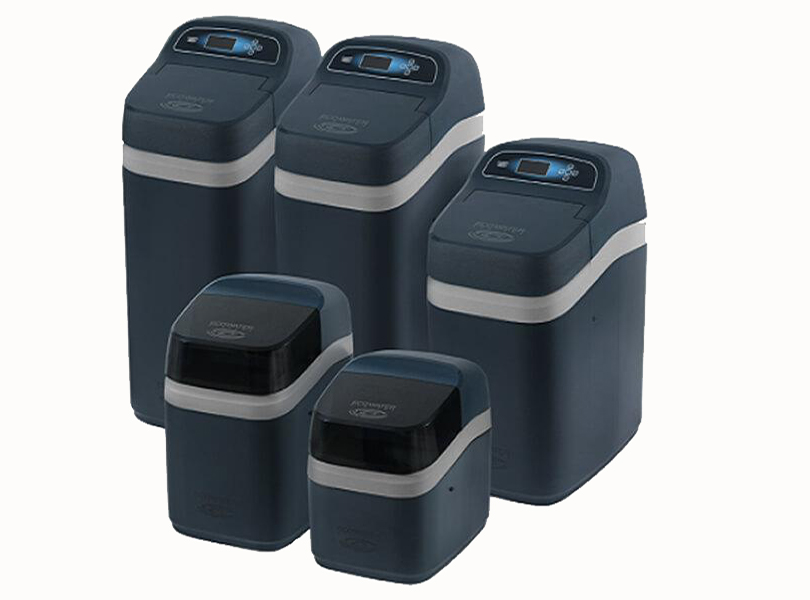Adrian Hart is the managing director of Hart water softeners and has served over 1000 customers across Suffolk, Ipswich and East Anglia.
Water softeners are critical tools in the battle against hard water, which can be detrimental to both home appliances and human health. Among the myriad options available, salt-based and salt-free softeners dominate the market. In this article, we’ll probe deeper into these two systems, examining their mechanisms, benefits, and best applications.
How Salt-based Softeners Operate
Salt-based softeners utilise ion-exchange technology. Here’s a closer look at their operation:
- Resin Beads Attraction – As hard water flows through the system, it encounters a myriad of resin beads. These beads, usually made of polystyrene, are negatively charged and attract the positively charged calcium and magnesium ions from the water.
- Regeneration Process – After extended use, the resin beads become saturated with calcium and magnesium ions. To restore their effectiveness, a concentrated brine solution, typically made from salt, is introduced. This solution flushes away the accumulated minerals, rejuvenating the resin beads.
- Softened Water Output – Post-regeneration, the softener resumes its primary function, delivering softened water devoid of calcium and magnesium ions to your taps.

Benefits of Salt-based Softeners
- High Efficiency – One of the main reasons homeowners choose salt-based systems is their unmatched efficiency in eliminating water hardness.
- Extended Appliance Lifespan – Hard water causes scale buildup, which can be detrimental to home appliances. With softened water, appliances like washing machines, dishwashers, and water heaters work efficiently and last longer.
- Optimised Soap Usage – Hard water affects soap’s lathering ability. With soft water, you get richer lather, meaning you’ll use less soap and save money in the long run.
Salt-free Softeners: More Than Just Softening
While often called ‘softeners’, salt-free systems are more accurately described as water conditioners. Here’s their mechanism:
- Crystallisation Process – Instead of removing calcium and magnesium, these systems transform these minerals into harmless, crystal forms. This alteration ensures the minerals don’t stick to surfaces, effectively preventing scale buildup.
- Uninterrupted Flow – Without the need for ion-exchange and regeneration, salt-free softeners provide an uninterrupted supply of conditioned water.
Benefits of Salt-free Softeners
- Zero Maintenance – Once installed, salt-free softeners demand little to no attention. You won’t need to replenish salt, making them perfect for those seeking a low-maintenance solution.
- Eco-friendly Approach – These systems don’t discharge salt-laden water, which can be harmful to the environment. Plus, they’re water-efficient, reducing overall household water consumption.
- Health Benefits – For individuals concerned about their sodium intake, salt-free softeners are ideal, as they don’t introduce any additional sodium into the water.

Choosing the Best Softener for Your Needs
To select the most suitable water softener for your home or business, consider the following aspects:
- Water Hardness Level – Extremely hard water areas like East Anglia generally need the robust capabilities of salt-based softeners for complete mineral removal.
- Maintenance Preferences – If you live in a less demanding hard water area and you’re looking for a near hands-off approach, salt-free systems, which require minimal to no maintenance, might be up your alley.
- Environmental and Health Considerations – Those leaning towards eco-friendly solutions or individuals on sodium-restricted diets would find salt-free softeners more fitting.
- Budget Constraints – While both systems can be considered investments, their costs vary. Determine your budget and factor in both the initial cost, and also potential maintenance and operating expenses.
- Available Space – Salt-based softeners, especially those with separate brine tanks, might require more space. Ensure you have adequate room for the system you’re considering.
- Frequency of Regeneration – For larger households or those with high water usage, consider how often a salt-based system would need regeneration. Some advanced models offer on-demand regeneration, optimising salt and water usage.
- Desired Water Feel: – Some users prefer the slippery feel that salt-based softeners impart to the water. If this isn’t to your liking, a salt-free conditioner might be more suitable.
- Local Regulations – Some regions have restrictions or bans on salt-based softeners due to environmental concerns. Before making a purchase, check local regulations to ensure compliance.
By carefully evaluating these criteria, you can pinpoint a water softening or conditioning solution that aligns seamlessly with your needs and preferences. Both salt-based and salt-free systems offer valuable benefits. Your location, specific requirements, budget, and long-term goals will guide you on making the right decision for your home or business.
Contact Hart Water’s expert team on 01440 713095 with your water softener queries for more detailed guidance or professional assistance.
- Water Softener Size Guide: How to Select the Perfect Fit for Your Home or Business - February 25, 2025
- Under Sink vs Whole House Water Filters: The Complete Homeowner’s Guide - November 27, 2024
- 7 Surprising Ways Water Softeners Transform Your Skin: Unveiling the Secret to Radiant Complexion - July 17, 2024

